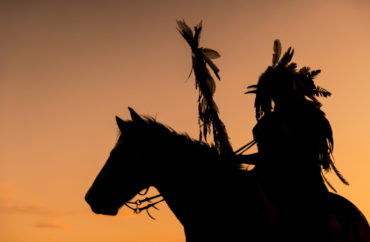
‘Warfare was brutal. Dakota warriors killed men, women, and children indiscriminately, and scalping was ingrained in their culture.’
In recent years, higher institutions across the U.S. have increasingly issued formal “land acknowledgments” recognizing the American Indian tribes that formerly inhabited the land.
But such statements blatantly ignore that Native Americans violently took the land over from other tribes and have also been financially compensated for the land, two scholars said in interviews this month with The College Fix.
A striking example of this trend can be seen in Minnesota, where numerous public and private universities have published land acknowledgments primarily referencing the Dakota people, a nation of American Indians that historically occupied the state.
While the statements vary in length and content, some Minnesotan universities use language asserting that an institution “occupies” the homelands of the Dakota people and seeks to remedy “ongoing injustices.”
But land acknowledgments “exemplify the sort of trendy virtue-signaling so prevalent on college campuses today. Institutions of higher education should do away with them,” Katherine Kersten, a senior fellow at Center of the American Experiment in Minneapolis, told The College Fix.
Kersten, a founding director of the conservative think tank, argued in a Winter 2024 article for the center that land acknowledgments fail to ask the question of how the Dakota people came to occupy the territory.
“These statements promote a simplistic ‘good guy/bad guy narrative’ of greedy, immoral settlers versus virtuous, long-suffering Native Americans, but the historical record tells a different, more complex story,” Kersten wrote.
Kersten pointed out the history of the Dakota nation in Minnesota, noting their warlike nature and ongoing violent conflict with the Ojibwe people, which began before the U.S. military entered the picture.
“Warfare was brutal. Dakota warriors killed men, women, and children indiscriminately, and scalping was ingrained in their culture,” she wrote.
The article also cited two other problems that land acknowledgments fail to consider: the area occupied by the Dakota people was actually small in size, and the U.S. government paid tribal members and their descendants millions of dollars in compensation for the land.
Kersten concluded that land acknowledgements also neglect the fact that Dakota people today benefit from the technological advances that Europeans brought to the New World.
She told The College Fix in a Feb. 19 email that the statements “push a ‘stolen land’ narrative that springs—not from the complex historical record—but from self-interested political activism.”
“The next time you’re asked to publicly pledge allegiance to this narrative, you should ask if you and others on campus have the information necessary to assess the credibility of the politically charged claims behind it,” she said.
Mark Perry*, professor emeritus of economics at the University of Michigan Flint, noted the hypocrisy of universities in promoting land acknowledgments while acting in ways contrary to those statements in a Feb. 13 email to The College Fix.
Perry offered the example of the University of St. Thomas, a private Catholic university in Minnesota, stating he noticed firsthand the major expansion of the university over the last few decades.
“One of the hypocrisies is that if universities like the University of St. Thomas were really serious about their acknowledgment that it ‘occupies the ancestral and current homelands of the Dakota people’ then it should give that land back to the Dakota people instead of expanding their footprint throughout the neighborhoods of St. Paul and Minneapolis,” Perry said.
Most of UST’s faculty, students and board of trustees are white compared to their small American Indian student population—only 18 students, or 0.21 percent of 8,500 students, according to Perry.
“So UST’s land acknowledgments condemn the mostly white campus and their ancestors as ‘settler colonialists’ who promote white supremacy,” he said.
“If UST is serious about what they are promoting in its land acknowledgments I would challenge them to: (a) give back some of their land and buildings to the Dakota people of Minnesota and (b) provide free tuition for an unlimited number of Native American students,” Perry said via email.
The University of St. Thomas did not respond to a request for comment from The College Fix.
Perry also affirmed multiple points made by Kersten in her article, such as her point that U.S. officials held at least 200 peace councils between the Dakota and Ojibwe at Fort Snelling in an effort to stop the bloodshed.
“So the U.S. government played a life-saving, humanitarian and positive role helping to reduce bloodshed between Native tribes, and that positive role saving Native lives and bloodshed is never recognized, and is never part of a land acknowledgment,” he told The Fix.
Editor’s note: Perry is a paid consultant for The College Fix on a topic unrelated to this article.
MORE: U. Minnesota-Twin Cities to formally recognize it sits on Native American land
IMAGE: TORWAISTUDIO / Shutterstock
Like The College Fix on Facebook / Follow us on Twitter





Please join the conversation about our stories on Facebook, Twitter, Instagram, Reddit, MeWe, Rumble, Gab, Minds and Gettr.